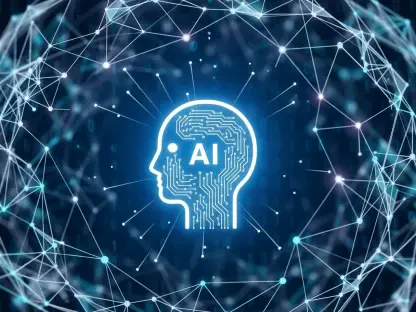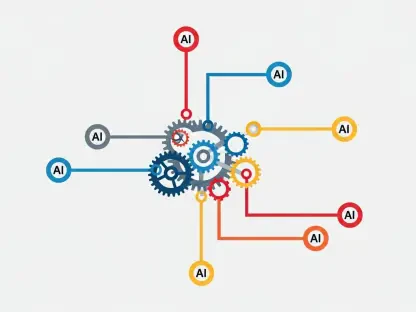The rapid growth in technology and the increasing importance of AI are driving significant changes in software engineering careers. This article delves into various aspects of the field, exploring the value of a software engineering degree, the necessary programming languages, a comparison between software engineering and AI careers, and the potential evolution of these fields.
The Expanding Scope of Software Engineering
Post-Pandemic Landscape
The COVID-19 pandemic has significantly expanded the field of software engineering by accelerating digitization across industries, resulting in a highly competitive job market. As remote working and digital solutions continue to be ingrained in everyday workflows, individuals are faced with the decision of whether to pursue software engineering or branch out into other realms such as AI, management, or even the arts. Each of these fields offers its own set of opportunities and challenges, but the focus here is on software engineering as it evolves in response to new demands.
The expansion has heightened the importance of adaptability, as developers are now required to tackle a wide range of software needs, from enhancing cybersecurity protocols to developing sophisticated user interfaces for an increasingly digital-savvy audience. Software engineering’s scope no longer remains confined to traditional tech roles but has spread to every sector, making it an attractive yet highly contested career choice. Individuals entering this field must be prepared not only to compete with a growing pool of talent but also to continually upgrade their skills to meet dynamic market demands.
The Value of a Software Engineering Degree
A degree in software engineering signifies a strong commitment to the field and confers several benefits that enhance career prospects. Firstly, it provides an extensive education in coding principles, algorithms, and systems design, which is fundamental for understanding complex software systems. This broad-based technical education helps cultivate strong problem-solving skills crucial for addressing real-world software issues effectively.
Additionally, possessing a formal degree often improves job prospects as many traditional employers regard it as evidence of a structured learning background and a certain level of expertise. Graduates are often able to secure higher starting salaries and have access to mentorship and career development resources while in school. However, in the constantly evolving tech sector, learned skills and hands-on experience can be equally if not more valuable. Consequently, individuals following self-taught pathways can still thrive if they show determination and drive.
Success in this competitive field relies heavily on how one approaches studies, aligns education with career aspirations, and capitalizes on opportunities. A formal learning environment does offer structure and professional advice, which can be significant assets. Whether it is through a traditional degree or alternative routes, the aim should be to build a solid knowledge base, foster critical thinking, and stay updated with emerging trends.
Essential Skills and Languages
Continuous Skill Improvement
To maintain and enhance their capabilities, software engineers must commit to continuous skill improvement throughout their careers. This commitment is vital irrespective of how skills were initially acquired, underscoring the importance of lifelong learning in the tech industry. One crucial aspect is mastering the use of pseudocode, which aids in planning and visualizing code logic before actual implementation. This skill not only sharpens problem-solving abilities but also proves beneficial during technical interviews.
Additionally, the tech industry values the demonstration of competence through projects and portfolios that showcase an individual’s ability to tackle real-world problems. Online courses, bootcamps, and webinars offer varied avenues for skill enhancement, helping professionals remain competitive. As technology progresses, proficiency in new programming languages, frameworks, and tools becomes essential. Therefore, even experienced software engineers must regularly update their technical knowledge to stay ahead.
Domain-Specific Languages
Programming languages form the backbone of software engineering, each serving distinct purposes and applications. For instance, in game development, C++ and C# are preferred for their performance efficiency and cross-platform support, respectively. Lua also finds its niche in game scripting, providing flexibility and ease of use. Meanwhile, blockchain development revolves around Solidity, which is essential for creating smart contracts on the Ethereum platform.
In blockchain ecosystems, Rust and Go are also prominent, with Rust known for its performance-critical infrastructure and Go for its effectiveness in managing distributed systems. Similarly, DevOps professionals lean heavily on Python for scripting and automation, Bash for shell scripting, and YAML/JSON for configuration management. Understanding these domain-specific languages provides insight into their unique strengths and applications, enabling software engineers to choose the most appropriate tools for specific project requirements.
Ecosystem Expertise
Understanding language ecosystems is critical for software engineers, as expertise transcends mere syntax and extends to the tools and frameworks associated with each language. JavaScript developers, for instance, need to be well-versed in Node.js for server-side scripting, npm for package management, and popular frameworks like React for building dynamic user interfaces. Similarly, Python developers must be proficient with libraries like NumPy and Pandas for data manipulation, and Django for backend web development.
In the Java ecosystem, familiarity with the Java Virtual Machine (JVM) and frameworks such as Spring and Hibernate is imperative. This comprehensive knowledge allows software engineers to leverage the full potential of the language and its ecosystem, leading to more efficient and effective solutions. Mastery of these ecosystems often gives professionals a competitive edge, as it reflects their ability to tackle a wide range of technical challenges and deliver high-quality software solutions.
Industry Preferences and Future Directions
Sector-Specific Languages
Different sectors have unique preferences when it comes to programming languages, driven by the specific needs and constraints of each industry. In financial applications, the reliability and performance of languages like Java and C++ make them invaluable, while Python’s versatility makes it a favorite for quantitative analysis and algorithmic trading. Health systems often employ C# for its integration capabilities with other Microsoft technologies and Java for its robustness and cross-platform portability. Furthermore, some legacy systems in healthcare still rely on MUMPS, highlighting the persistent need for maintaining older codebases.
In scientific computing, languages such as Python, R, Julia, and Fortran are indispensable for handling large-scale numeric computations and data analysis. These languages provide powerful tools for complex mathematical modeling and simulations, making them essential in research-heavy environments. Understanding these sector-specific preferences and acquiring proficiency in the relevant languages can significantly enhance job prospects and career progression within specialized fields.
Emerging Technologies
The future of software engineering holds exciting prospects with the advent of emerging technologies. Rust is garnering attention for its memory safety features and is increasingly being adopted for systems programming. This language addresses critical issues like buffer overflows and null pointer dereferencing, enhancing software reliability. WebAssembly, another pivotal technology, allows code to run in web browsers, empowering developers to write web applications in various languages beyond JavaScript.
Additionally, low-code platforms are simplifying development processes, enabling quicker deployment of applications even by those with limited coding expertise. These platforms facilitate drag-and-drop features and visual modeling, reducing the complexity of coding tasks. Furthermore, new domain-specific languages continue to emerge, catering to niche applications and addressing specific challenges. Keeping pace with these technological advancements is essential for software engineers aiming to remain relevant and effective in an evolving landscape.
Software Engineering vs. AI Careers
Complementary Fields
AI is expected to revolutionize rather than replace software development, serving more as a smart helper that can augment a programmer’s capabilities. This evolution in AI technologies opens new horizons for software engineers, providing tools that can automate mundane coding tasks, optimize algorithms, and suggest improvements. The integration of AI in software development workflows can enhance productivity and lead to more efficient and innovative solutions, fostering a harmonious coexistence between the fields.
Instead of experiencing a replacement dynamic, software engineers can leverage AI to tackle complex problems, thereby expanding their roles and responsibilities. By integrating AI tools such as code completion and automated testing within their projects, software engineers can achieve higher accuracy and reduce the time required for development. This symbiotic relationship between AI and software engineering is set to create more specialized career opportunities, emphasizing the need for professionals to adopt a versatile and adaptive approach.
Career Security and Opportunities
In terms of job stability and career security, software engineering is traditionally perceived as offering more consistent opportunities compared to the relatively volatile AI specialization. The demand for software engineers spans across various industries, providing a buffer against fluctuations within specific sectors. While AI specialization presents intriguing and often lucrative job opportunities, it also involves navigating certain uncertainties, particularly concerning the evolving landscape of machine learning models and ethical considerations.
Despite AI’s growing capabilities, it is still challenged by tasks requiring nuanced understanding and decision-making. AI’s limitations in analyzing and fixing existing code indicate that human expertise remains indispensable, further solidifying the role of software engineers. Professionals who successfully blend software engineering with AI knowledge could find themselves at a distinctive advantage, enjoying a blend of career stability and cutting-edge opportunities.
Adapting to AI Integration
Software engineers are expected to evolve by learning to use AI tools not as replacements, but as enhancements to their existing skillset. Embracing AI tools to automate repetitive tasks and focusing on higher-level architectural and design problem-solving will be key. This adaptation will lead to two classes of professionals: those who effectively integrate AI into their roles and those who do not, with the former likely enjoying greater success and productivity.
Additionally, building domain-specific knowledge that AI cannot replicate is crucial. This includes deep understanding of industry-specific requirements and regulatory landscapes. Engineers who adapt to this AI-enhanced environment will be better equipped to design advanced systems, ensuring long-term career relevance and the ability to manage more complex projects. Continuous education and willingness to embrace technological advancements will drive career longevity in the software engineering domain.
Comparing Computer Science and Software Engineering
Theoretical Base vs. Practical Implementation
The choice between computer science (CS) and software engineering (SE) usually depends on whether one prioritizes theoretical knowledge over practical implementation. Computer science provides a robust theoretical foundation covering extensive topics like algorithms, the theory of computation, programming languages, and artificial intelligence. This strong theoretical base allows computer science professionals to effortlessly transition across specializations, making it easier to pivot towards fast-evolving fields such as AI, graphics, database design, and machine learning.
In contrast, software engineering focuses on practical application, equipping graduates with industry-ready skills for immediate productivity. SE programs emphasize software development lifecycle, project management, and real-world development practices, ensuring that graduates are well-prepared for hands-on roles. This practical approach directly addresses the immediate needs of tech firms, positioning software engineering graduates as highly valuable assets capable of contributing from day one.
Hands-On vs. Theoretical Interests
For those more inclined towards hands-on implementation and direct application, pursuing a degree in software engineering is advisable. SE programs are geared towards developing skills that translate directly into workplace tasks, allowing graduates to dive into coding, debugging, and collaborating on large-scale projects. This experience in team coordination, adherence to best practices, and software lifecycle management is particularly beneficial in roles that demand immediate technical contributions.
Conversely, individuals interested in the theoretical aspects of technology would find computer science degrees more suitable. With an emphasis on fundamental principles, research opportunities, and the flexibility to explore various specializations, a computer science background can lead to roles in academia, innovative research, and specialized technical fields. The depth of knowledge gained in computer science forms a strong platform for innovation and exploration, driving advances in technology.
Ultimately, the decision between computer science and software engineering should align with one’s career ambitions and personal interests. Both degrees offer robust career opportunities, and understanding the unique advantages of each can help prospective students make well-informed decisions.
Preparing for the Future
The rapid surge in technology and the rising significance of artificial intelligence (AI) are bringing about profound transformations in software engineering careers. This article offers an in-depth look into different facets of the field, discussing the worth of acquiring a degree in software engineering, the crucial programming languages one should master, and how software engineering careers stack up against AI careers. Additionally, it delves into the potential future developments in these domains. With technology evolving at breakneck speed, aspiring engineers are considering the impact of AI and exploring how it can augment or even fundamentally change their career paths. By thoroughly understanding the importance of a comprehensive education, the skills required, and how AI compares and interacts with traditional software engineering, individuals can better prepare for the dynamic nature of these interconnected fields. This knowledge can help them navigate their career trajectories more strategically, ensuring they remain relevant and competitive as the landscape evolves.









